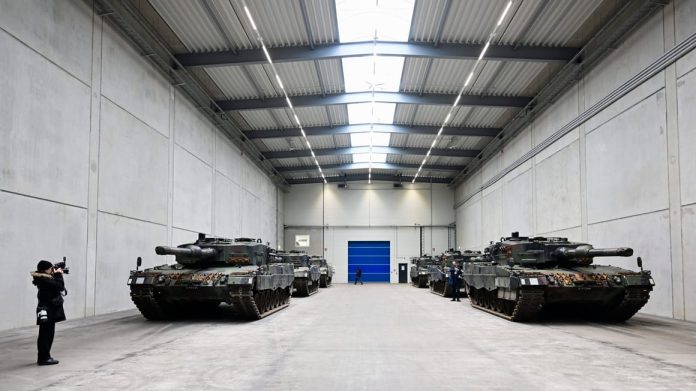EU High Representative for Foreign Affairs and Security Policy Josep Borrell said that while there is no point in creating an EU army, it is necessary to work on cohesion between the military forces of each individual member state of the alliance.
For years, Paris, Berlin and even Budapest have called for an EU army. But in the past few months, as European leaders have engaged in intense discussions about the Union’s defence ambitions, the voices calling for an EU army have been all but silenced. Josep Borrell, the EU’s top diplomat, told Playbook:
“Defence is a member state competence. The point is not about having an EU army but rather to work better together among the 27 armies.”
On Tuesday, the European Commission presented the long-awaited strategy for the European defence industry. Its “raison d’être” lies in the figures that Josep Borrell announced to journalists:
“In 2022, the defence investment of our member states amounted to €58 billion, fragmented among 27 demand centers. In the US, a single one, the Pentagon, has invested €215 billion — almost four times more.”
Dutch Defence Minister Kajsa Ollongren said she was prepared to review the Commission’s controversial plan to copy the US Foreign Military Sales programme, which is used to transfer military equipment, services and training to Washington’s international partners and organisations. Ollongren noted:
“We will study the proposal in the coming days, but in general I support creative ideas that enhance the competitiveness of the EU Defence Technological and Industrial Base. Whether an EU version of Foreign Military Sales is the best way to do this we’ll have to discuss, but we are open to the idea.”
At today’s meeting, EU ambassadors continued trying to find a solution to Franco-German issues that are blocking a deal to reform the EPF, an extra-budgetary mechanism that partially reimburses countries for military equipment sent to Ukraine. The stumbling blocks are France’s push for a “buy European” clause and Germany’s campaign for bilateral contributions to Ukraine to be considered equivalent to cash contributions to the EPF. EU leaders have called for a solution “by early March”.
